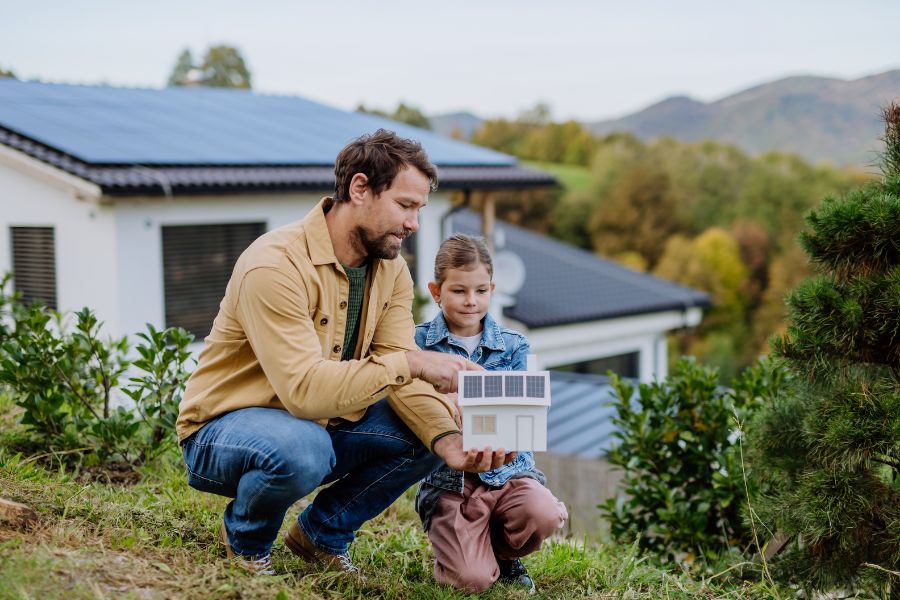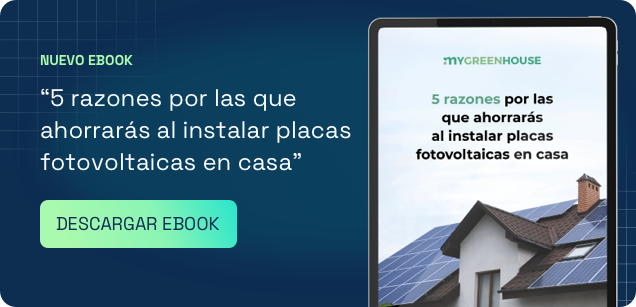Are you familiar with the concepts of self-consumption, zero waste, cruelty-free, and being eco-friendly?
They’re all related to the idea of being sustainable. Sustainability is an idea that, on the one hand, is focused on meeting the needs of the present without compromising the needs of future generations, and, on the other hand, on guaranteeing environmental protection, economic growth, and social development.
The quest for sustainability makes us rethink our consumer habits and lifestyles, and leads us to reflect on the way we live, move, dress, and interact with everything around us.
What is sustainable energy?
The concept of sustainable energy encompasses all of the above and brings it into the ambit of energy production and consumption.
We can define sustainable energy as the optimisation of energy and its ongoing production, without endangering the source nor the surroundings it’s produced in.
In other words, a sustainable energy model is essentially based on using energy sources that don’t deplete and that don’t cause secondary damage during their production and use.
It’s worth noting that, for years, the energy industry has been searching for the most efficient means of generating the energy we use at an industrial, commercial, and domestic level.
One of the most obvious examples is solar energy, which is crucial in order to achieve a sustainable model based on self-consumption.
However, being sustainable goes much further than that: it’s a life philosophy, which we should apply in many of our daily activities, as we’ll explain below.
22 tips to be more sustainable at home
- Use reusable bags, made of cloth, cotton or jute. In this way, you’ll avoid having to use plastic bags.
- Separate your waste and dispose of it in its appropriate waste bin. It’s a simple action and the benefits are many.
- Buy loose products, above all, vegetables, cereals and nuts. Buying oil or wine in bulk also helps you to recycle containers and to consume what you really need, without waste.
- Modify your diet. If you eat more vegetables, pulses, and fish, and avoid processed foods, you will reduce your CO₂ consumption and have a healthier diet.
- Buy local products. We recommend buying local and seasonal food, which is tastier, cheaper, and less polluting because it’s quicker to transport.
- Opt for LED or energy-saving lights. These consume less energy and you’ll notice it on your bills. You can replace the light bulbs in your home little by little if you wish. What are your priorities? First you should get rid of halogen and incandescent bulbs.
- Wash the dishes with lukewarm or cold water. Domestic hot water production systems consume a lot of energy. A tip to improve their efficiency? Wash dishes with cold water (use gloves) and you’ll save up to 80%.
- Be careful with your water use. In other words, turn off the tap when you don’t need the water and only run the washing machine and dishwasher when they’re full.
- Follow the 3R philosophy: reduce, reuse, and recycle. More specifically, reduce plastic consumption, reuse objects or clothes, and recycle what you haven’t been able to give a second life to.
- Consume responsibly. This involves simple things like going through your wardrobe and replacing your clothes only when you really need to.
- Change your plastic toothbrush. Why not buy bamboo or bioplastic toothbrushes?
- Use sustainable feminine hygiene products. Look for alternatives to conventional tampons and pads. Try cloth pads, menstrual cups, and menstrual panties.
- Avoid disposable razors. It’s best to use stainless steel razors with refills. This is an investment that pays off in the long run.
- Choose “natural” packaging. Forget about kitchen film or aluminium foil to cover or wrap food. Instead, use silicone or cloth bags for sandwiches, and silicone bags and boxes for freezing or storing food.
- Try not to buy plastic products. Buy glass or silicone containers, as well as kitchen or cleaning utensils.
- Less disposable items. Being sustainable means adopting some key principles. One of the most important is to buy to reuse. Say goodbye to plastic plates or cups and disposable straws, and welcome bamboo or stainless steel straws with “infinite” uses.
- Prioritise public transport. This is a practical and cost-effective way of getting around your city. In addition to avoiding traffic jams, you will also be helping to reduce traffic and pollution.
- Make the most of your food. If you don’t buy ready-made food and cook it yourself, you will reduce food waste. Use tupperware to avoid throwing anything away.
- Shop consciously. When buying food to fill your fridge, try to make sure that most of it is wrapped in recyclable materials, such as cardboard or glass.
- Natural cleaning products. Some cleaning products contain highly toxic chemicals. If you’re aiming for greater sustainability, then opt for natural cleaners such as white vinegar, which can neutralise bad smells, remove rust or limescale, polish sinks and mirrors, and even disinfect objects and surfaces.
- Install solar panels. A sustainable energy system is based on self-consumption, and the best way to achieve this is to choose photovoltaic solar panels, with their many advantages and benefits for your home.
- Check your electricity contract. To be more sustainable, you should choose the electricity or gas tariffs that best suit your needs. It’s also advisable to prioritise companies that are committed to producing energy from renewable sources.
Here at My Green House we are committed to efficiency and sustainability. If you’re looking for advice or want to install solar panels in your home or business, don’t hesitate to call us.


